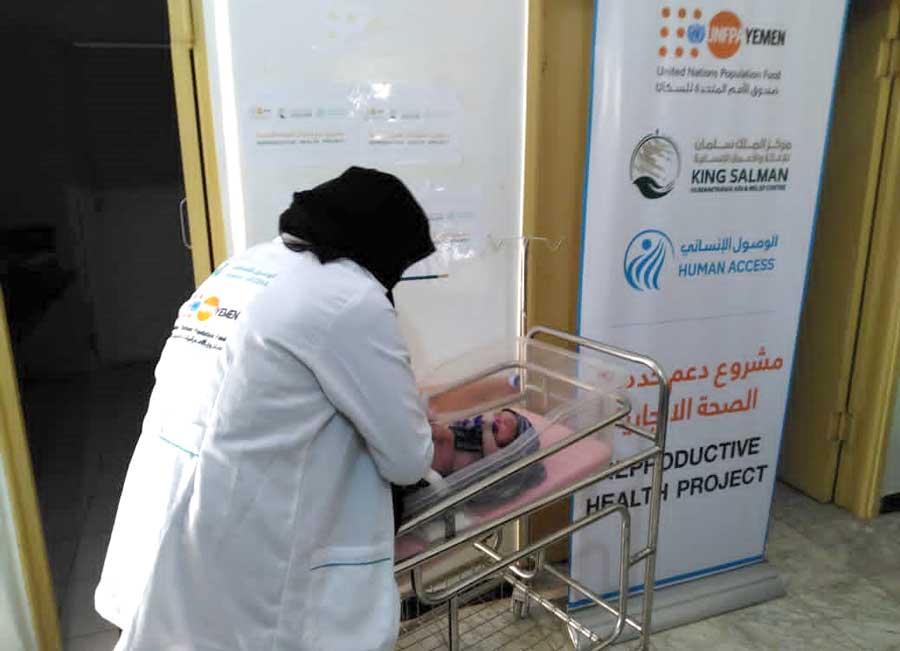
A three-dimensional crisis experienced by Ishfaq Thabet - 21 years old - has become a source of deep concern for her in particular, and for her husband as well, who struggles daily to survive at a time when the war has expanded poverty and unemployment in Yemen.
Ishfaq is a displaced woman in one of the villages of Al-Madaribah and Ras Al-Arah district in Lahj Governorate. The displaced are in a particularly vulnerable situation, as displaced women and girls are often more vulnerable to shocks due to the loss of livelihoods and depleted savings.
As a first-time mother, Ishfaq suffers from the phobia of childbirth common among women who have never given birth.
In some pregnant women, fear can lead to panic and extreme fear, which can cause health problems for the mother and her unborn baby.
Ishfaq's residence is about 40 miles from the nearest hospital. And according to the United Nations, an estimated 42.4 percent of Yemen's population lives more than one hour away from the nearest fully or partially functioning public hospital. Thus, seeking emergency health care is a perilous journey for people living in remote areas.
Labor had begun and she was lucky
The three-dimensional crisis - displacement, fear of childbirth, and distance from hospital - ignited fear in Ishfaq, and her situation has become a cause for pity in a country suffering from high levels of maternal mortality, as a Yemeni woman dies every two hours during childbirth from preventable causes.
After the labor began at home, her husband accompanied her immediately to the Ras al-Arah rural hospital.
Ishfaq is fortunate that the hospital is covered by the project to support reproductive health services implemented by HUMAN ACCESS with funding from the United Nations Population Fund (UNFPA).
Because of this project, the hospital provides reproductive health services, and its experienced medical staff saves vulnerable groups enormous amounts of money that would otherwise have been incurred to obtain high-quality health care in Yemen due to the collapse of the health care system.
The journey of fear crowned with overwhelming happiness
As soon as Ishfaq arrived at the hospital, the medical team rushed to receive her and provided her with the care she needed.
The medical team noticed the state of fear that was controlling her and causing her to deteriorate sharply, so they reassured her and conducted prenatal check-ups and gave her the necessary medications.
Two hours after her arrival at the hospital, Ishfaq gave birth to a healthy baby boy, and she was overwhelmed with happiness thanks to the project to support reproductive health services carried out by HUMAN ACCESS in Lahj with the support of United Nations Population Fund (UNFPA).
Ishfaq expressed her deep thanks for this project, which spared her complications and provided her with the safe and timely delivery services she desperately needed, as part of continuous efforts to reduce maternal and neonatal deaths in the country.


